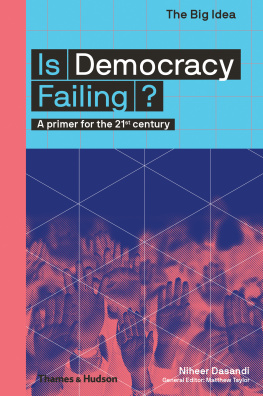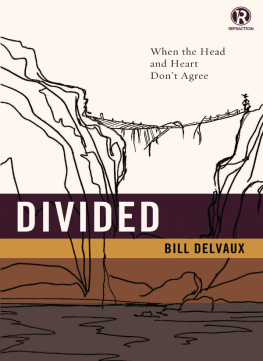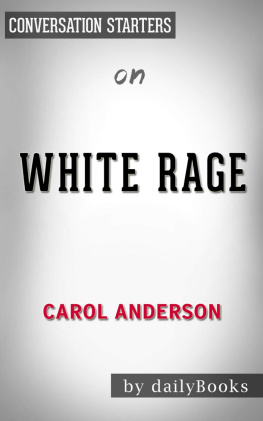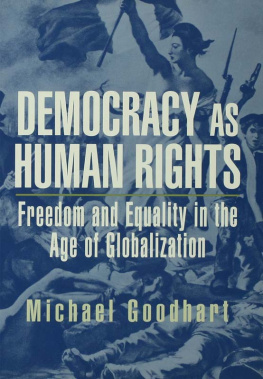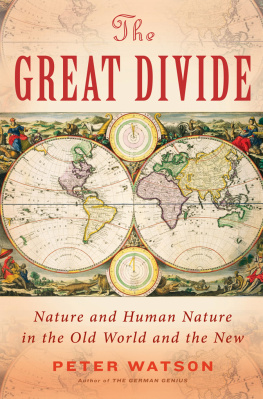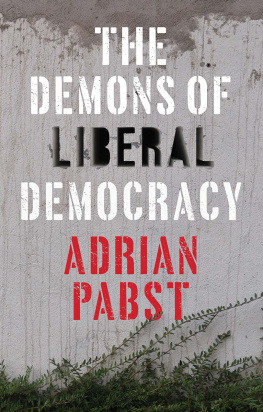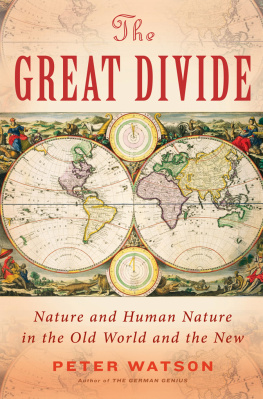The Great Divide
Why Liberals and Conservatives Will Never, Ever Agree
Also by William D. Gairdner
The Critical Wager (1982)
The Trouble with Canada (1990)
The War Against the Family (1992)
Constitutional Crack-Up (1994)
On Higher Ground (1996)
After Liberalism [ed.] (1998)
Canadas Founding Debates [ed.] (1999)
The Trouble with Democracy (2001)
The Book of Absolutes (2008)
Oh, Oh, Canada! (2008)
The Trouble with Canada Still! (2010)


2015 by William D. Gairdner
All rights reserved. No part of this publication may be reproduced, stored in a retrieval system, or transmitted, in any form or by any means, electronic, mechanical, photocopying, recording, or otherwise, without the prior written permission of Encounter Books, 900 Broadway, Suite 601, New York, New York, 10003.
First American edition published in 2015 by Encounter Books, an activity of Encounter for Culture and Education, Inc., a nonprofit, tax-exempt corporation.
Encounter Books website address: www.encounterbooks.com
The paper used in this publication meets the minimum requirements of ANSI/NISO Z39.481992 (R 1997) (Permanence of Paper).
Interior page design and composition: BooksByBruce.com
FIRST AMERICAN EDITION
LIBRARY OF CONGRESS CATALOGING-IN-PUBLICATION DATA
Gairdner, William D. (William Douglas), 1940
The great divide : why liberals and conservatives will never, ever agree / by William D. Gairdner.
pages cm
Includes bibliographical references and index.
ISBN 978-1-59403-765-8 (ebook)
1. Liberalism. 2. Conservatism. 3. Right and left (Political science) I. Title.
JC574.G34 2015
320.51 dc23
2014039152
For my children, and grandchildren
TABLE OF CONTENTS








Where Do You Stand?
ACKNOWLEDGMENTS
Every author owes a debt to teachers, colleagues, friends, and family, to those living and those long gone. Books on a personal library shelf become like old friends, and I still find amazing and wonderful the fact that all we have to do is open them to hear voices, as if the authors were in the room. There are many important thinkers of the past and present, voices too numerous to mention, who have helped with the ideas in this book, and I thank them all for their guidance. Among family and close friends I especially thank my wife, Jean, for her incisive and helpful comments and encouragement, my children and in-laws for their forbearance, and my friends and colleagues Ian Gentles and Salim Mansur for their helpful insights. For their contributions to a list of freedoms lost under the democratic rule of the present, and general comment on economic matters, I thank Bill Robson of the C.D. Howe Institute, Peter Holle and his staff at the Frontier Centre for Public Policy, Mark Milke of the Fraser Institute, Brian Lee Crowley of the Macdonald-Laurier Institute, and Filip Palda of the cole nationale dadministration publique. Lastly, I thank Roger Kimball of Encounter Books for his unhesitating confidence in my initial proposal for this book; the staff at EncounterSam Schneider, Lauren Miklos, and Heather Ohlefor guiding the book through to publication; and my careful editor for so many helpful corrections and comments.
This book is written for people who are tired of living in a society in which they cant seem to defend their deeply held opinions on serious moral and political issues without stirring up a lot of scorn and outragepeople who would rather skip the emotion, dig a little deeper, and understand better the underlying differences between the liberal and conservative worldviews that seem increasingly to be separating citizens from each other.
Whether we witness it on a radio or television show, or personally at a dinner or cocktail party, the experience of the divide is always the same. Enemies are assembled on two different sides of an issue; they talk past each other as they deliver incompatible views; then they shout and overtalk each other a lot, and end up more divided than when they started. Everyone is left with a dispiriting sense that no consensus is possible or desired, because there is no longer any common moral or political language to sharejust a Great Divide. Needless to say, this divide is reflected at the political level in the variously colored political maps of most nations, and in the obvious and deepening rural-urban divide that is easily sensed in most of them.
The contention of this book is that no matter what the topic, debates always take place on at least two levelsat the surface, and in the depths. There is what people believe is the cause of a problem; and somewhere else, way down below, beyond the facts as they appear, we can usually locate the real, hidden cause. Which reminds me of a lesson I learned from my horse. Before taking him for a ride he lets me lift his feet to clean them, one after the other. One day he just wouldnt give me his right foot, no matter how much I leaned into him to shift his stubborn one thousand pounds leftward. So I called the vet. Something is wrong with his right foot. He wont let me lift it. What the vet said opened my eyes to how we so often look for answers in the wrong places, based mostly on first appearances; how we so often mistake the smoke for the fire. Theres nothing wrong with his right foot, he said. Its the left one thats sore. He wont give you the right one because he doesnt want to put his weight on the left one. That little scenario taught me a lot: I was thinking about the foot, instead of thinking about the horse.
This book is about depths, not surfaces. The terms liberal and conservative as used here are not political party labels. Rather, they describe the two sides of a deep liberal-versus-conservative philosophical and ideological divide that is pre-political, that has been widening below the political and moral surface of ordinary life for a very long time, and that I submit is the cause of so much confusion and emotion at the surface.
Next page

